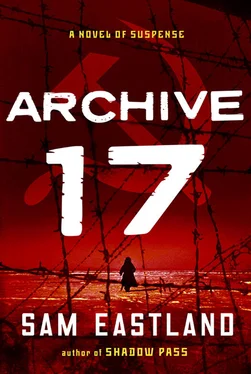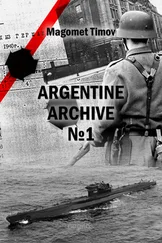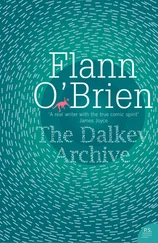Sam Eastland - Archive 17
Здесь есть возможность читать онлайн «Sam Eastland - Archive 17» весь текст электронной книги совершенно бесплатно (целиком полную версию без сокращений). В некоторых случаях можно слушать аудио, скачать через торрент в формате fb2 и присутствует краткое содержание. Жанр: Исторический детектив, на английском языке. Описание произведения, (предисловие) а так же отзывы посетителей доступны на портале библиотеки ЛибКат.
- Название:Archive 17
- Автор:
- Жанр:
- Год:неизвестен
- ISBN:нет данных
- Рейтинг книги:3 / 5. Голосов: 1
-
Избранное:Добавить в избранное
- Отзывы:
-
Ваша оценка:
- 60
- 1
- 2
- 3
- 4
- 5
Archive 17: краткое содержание, описание и аннотация
Предлагаем к чтению аннотацию, описание, краткое содержание или предисловие (зависит от того, что написал сам автор книги «Archive 17»). Если вы не нашли необходимую информацию о книге — напишите в комментариях, мы постараемся отыскать её.
Archive 17 — читать онлайн бесплатно полную книгу (весь текст) целиком
Ниже представлен текст книги, разбитый по страницам. Система сохранения места последней прочитанной страницы, позволяет с удобством читать онлайн бесплатно книгу «Archive 17», без необходимости каждый раз заново искать на чём Вы остановились. Поставьте закладку, и сможете в любой момент перейти на страницу, на которой закончили чтение.
Интервал:
Закладка:
While this was going on, three trucks pulled up at the entrance to the lumberyard.
Following another order shouted by the guard, the naked prisoners formed a line. With shoulders hunched and fists clenched over hearts, they filed past the trucks one by one. From the first vehicle, each man received a black hip-length jacket called a telogreika . Sewn into the jackets were long, sausage-shaped lines padded with raw cotton. From the second truck, prisoners received matching trousers, and from the third boots made of rubberized canvas. None of the clothing was new, but it had been washed in gasoline to kill the lice and strip away some of the dirt.
The guards who threw this clothing from the trucks had no time to think of sizes. Prisoners exchanged garments until they found what fit them, more or less.
It began to snow. Large flakes, like pieces of eggshell, settled on their hair and shoulders. Before long, a blizzard was falling sideways through the air.
In ranks of three, the convicts set off walking towards the camp, leaving behind the man who had been shot. He lay upon the dirty snow surrounded by a halo of diluted blood.
A short distance away, Borodok’s tall stockade fence of sharpened logs loomed from the mist like a row of giant teeth.
The gates were opened, but before the prisoners could enter, a man with a bald head and a jagged-looking tattoo on his hand rode out on a cart piled with emaciated corpses. Wired around the left big toe of each body was a small metal tag. Together, they flickered like sequins on a woman’s party dress. The cart was a strange-looking contraption, its wheel spokes twisted like the horns of a mythical beast and its flared wooden sides decorated with red and green painted flowers foreign to Siberia. The horse that pulled this cart wore a white mane of frost, and long white lashes jutted from its eyelids like ivory splinters. The tattooed man did not even glance at the convicts as his cart jostled out into the storm.
Then the prisoners marched into the camp.
Once they were inside the stockade fence, the only view of the outside world was the tops of trees in the surrounding forest. Beyond the barracks, administrative building, kitchen, and hospital, the camp dead-ended against a wall of stone. There, on rusted iron stakes, snarls of barbed wire fringed the rock where a mine shaft had been cut into the mountain.
The center of the compound was dominated by the statues of a man and a woman, mounted on a massive concrete platform. The man, stripped to the waist, held a book in one hand and a blacksmith’s hammer in the other. The woman clutched a sheaf of wheat against her concrete dress. Both of them were frozen in midstride as they headed towards the main gates of the camp.
Engraved into the base were the words LET US HEAL THE SICK AND STRENGTHEN THE WEAK!
The statue had not been there on his last visit to the camp. Pekkala wondered where it had come from and what it was doing there. He wondered, too, what possible comfort a Gulag prisoner could draw from such an exhortation.
Like giants bound upon some journey without relevance to man, the statues appeared to stride past the barracks huts, whose tar-paper roof tiles winked like fish scales in the sunset.
The prisoners were ordered straight to their barracks, which were large, single-room buildings with bunk beds fitted one arm’s length apart. Bare wooden planks made up the floors and ceiling. The heating in the barracks came from two woodstoves, one at either end. Prisoners measured their seniority in how close they slept to those stoves. The room smelled of smoke and sweat and faintly of the bleach used to wash down the floors once a month. The barracks were guarded at night by an old soldier named Larchenko, who sat on a chair by the door reading a children’s book of fairy tales.
Having eaten his rations, which consisted of a scrap of dried fish wedged between two slices of black bread, Pekkala found himself in a bunk near the center of the main barracks block.
After the long journey, the convicts were too exhausted to talk. Within minutes, most of them were asleep.
Sometime in the night, Pekkala woke to see a figure shuffling about between the rows of beds which lined the walls.
It was the guard, Larchenko.
At first Pekkala thought he must be looking for something, the way the soldier moved so carefully across the splintery wooden boards. One of Larchenko’s arms was held out crookedly, as if it had been broken and then anchored in a cast. Blinking the sleep from his eyes, Pekkala lifted his head to get a better view.
In the darkness of the barracks, Larchenko was still nothing more than a silhouette, turning and turning like a clockwork ballerina in a jewelry box.
Then suddenly Pekkala understood. The man was dancing. His crooked arm was held about the waist of an imaginary partner. In that instant, the clumsy, swaying movements translated themselves into a waltz. Pekkala wondered who she was, this ghost of past acquaintance, and which orchestra’s music echoed in the ballroom of his skull.
A memory, shrouded until now in darkness, came hurtling like a meteor into the forefront of Pekkala’s mind.
The door of his cottage flew open .
It was the middle of the night .
By the time the Imperial Guard’s eyes had accustomed themselves to the dark, he was already looking down the blue-eyed barrel of Pekkala’s Webley revolver .
“What do you want?” Pekkala demanded .
“Inspector!” The guard had been running. He gasped for breath as he spoke. “The Emperor has sent for you!”
Pekkala lowered the gun .
A few minutes later, buttoning his coat as he ran, Pekkala followed the guard along the gravel path which led to the Alexander Palace. Moonlight turned the lawns of the Tsarskoye Selo estate into vast slabs of lapis lazuli .
The two men raced up the wide stone steps and into the front hall of the palace .
The building echoed with shouts and whispered voices .
A maid of the Imperial household, in her uniform of black dress and white apron, drifted past them like an albatross, one hand held against her mouth to stifle the sound of her crying .
Then Pekkala saw the Empress. Still in her mauve silk nightdress, she darted out of the Imperial bedroom. On slippered feet, the Empress glided towards Pekkala. “You must go to the Emperor at once!”
On her breath, Pekkala smelled the sickly odor of the opium-laced medicine without which Alexandra Romanov could no longer find her way into the catacombs of sleep. “What has happened, Majesty?”
“It is the nightmare,” she hissed .
A moment later Pekkala stood in the doorway to the Tsar’s bedroom .
The Tsar lay spread-eagled on his bed. The sheets had been kicked off. Sweat darkened his nightshirt .
Two nervous doctors hovered in the shadows .
“Pekkala,” groaned the Tsar, “is that you?”
“I am here, Majesty.”
“Get these butchers out of the room.” Feebly he gestured towards the doctors. “All they want to do is turn me into a morphine addict.”
The two men, somber as herons, filed out of the room without even glancing at Pekkala .
“Shut the door on your way out!” the Tsar commanded .
The doctors did as they were told .
Slowly, the Tsar sat up in bed. He was a picture of complete exhaustion. With twitching hands, he reached for the cigarette case which lay beside his bed. It had been fashioned out of solid gold by Michael Perchin, one of the workmasters at the Faberge factory. The case had been engraved with gentle S-shaped curves, which reminded Pekkala of patterns he had seen as a child, in windblown sand down by the water’s edge at his family’s summer cottage on the Finnish island of Korpo .
Читать дальшеИнтервал:
Закладка:
Похожие книги на «Archive 17»
Представляем Вашему вниманию похожие книги на «Archive 17» списком для выбора. Мы отобрали схожую по названию и смыслу литературу в надежде предоставить читателям больше вариантов отыскать новые, интересные, ещё непрочитанные произведения.
Обсуждение, отзывы о книге «Archive 17» и просто собственные мнения читателей. Оставьте ваши комментарии, напишите, что Вы думаете о произведении, его смысле или главных героях. Укажите что конкретно понравилось, а что нет, и почему Вы так считаете.











